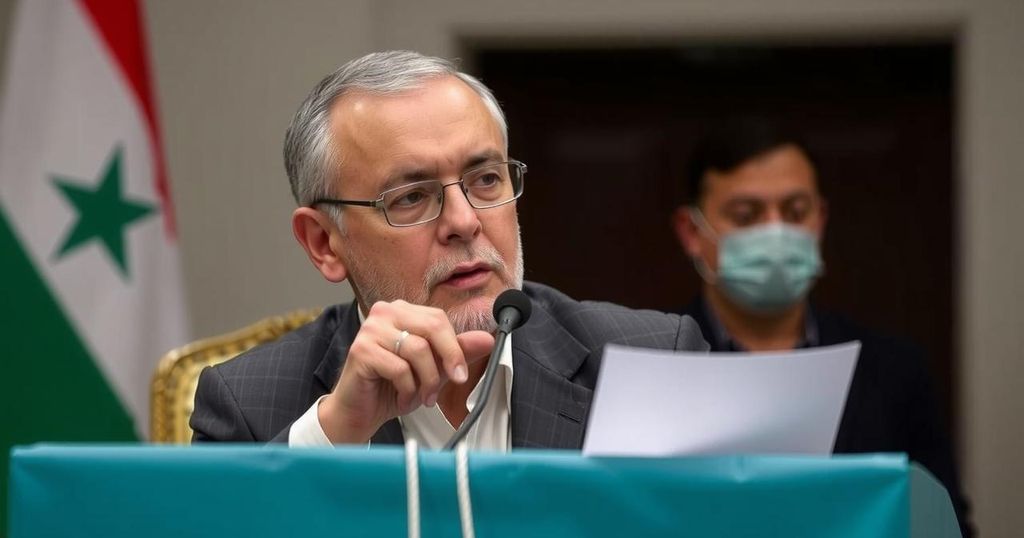Syria’s de facto leader Ahmad al-Sharaa announced that elections may take up to four years to organize. Following the overthrow of Assad, al-Sharaa emphasized the need for infrastructure and a new constitution. His leadership is focused on gaining international legitimacy while planning HTS’s dissolution. Engagements with various diplomatic delegations signal a shift from previous isolation and seek to recalibrate Syria’s position in regional affairs.
Elections in Syria may take up to four years to organize, according to the de facto leader Ahmad al-Sharaa, following his group’s recent overthrow of the Assad regime. Al-Sharaa, previously known as Abu Mohammad al-Jolani and now leading the Islamist group Hayat Tahrir Al-Sham (HTS), emphasized the necessity of establishing proper infrastructure before elections can occur. He indicated that the interim government would aim to draft a new constitution, a process that could extend over three years. Al-Sharaa described the current phase as one of re-establishing the nation rather than mere governance. He reiterated the importance of ensuring that the constitution effectively addresses societal regulations to prevent a return to past governance failures.
In addition to the internal developments, Al-Sharaa mentioned plans to dissolve HTS in the context of a National Dialogue Conference, for which no date has been set. Notably, he also spoke on Syria’s external relations, particularly referencing Russia’s evolving role following the regime change and the withdrawal of Russian military assets.
The search for international legitimacy continues as Al-Sharaa engaged in discussions with a visiting Ukrainian delegation, emphasizing shared struggles between Syria and Ukraine. His recent meetings with various diplomatic delegations underscore a significant shift in his leadership approach, moving away from a jihadist background towards a more statesmanlike demeanor. Furthermore, al-Sharaa’s recognition of Saudi Arabia’s potential influence in Syria’s future illustrates his strategic intent to shift regional alliances and navigate the complexities of Middle Eastern politics.
In recent months, Syria has faced significant political upheaval following the overthrow of its longtime leader Bashar al-Assad. This transition has precipitated a need for establishing new governance structures, including elections and a revised constitution. Ahmad al-Sharaa, the leader of Hayat Tahrir Al-Sham, has positioned himself and his group at the forefront of this transformation. The interim government’s plans and international engagements highlight the challenges and shifting dynamics of power in Syria following the regime change. Al-Sharaa’s efforts also reflect a broader strategy to gain legitimacy on the international stage while redefining Syria’s diplomatic relationships.
In summary, the timeline for Syrian elections and the drafting of a new constitution may extend as far as four years. Ahmad al-Sharaa’s leadership indicates a significant shift in the country’s governance, emphasizing the reconstruction of Syria’s political framework. His meetings with international delegations signify a proactive attempt to gain legitimacy and redefine Syria’s alliances in the region. The dissolution of HTS and a focus on rebuilding societal structures are essential steps toward stabilizing the nation and ensuring a future distinct from its past governance failures.
Original Source: www.cnn.com






